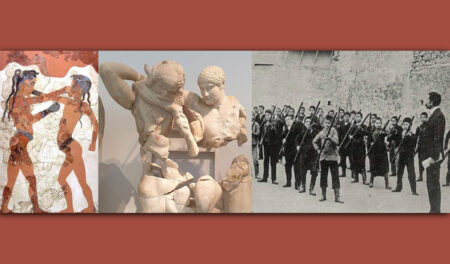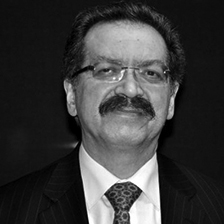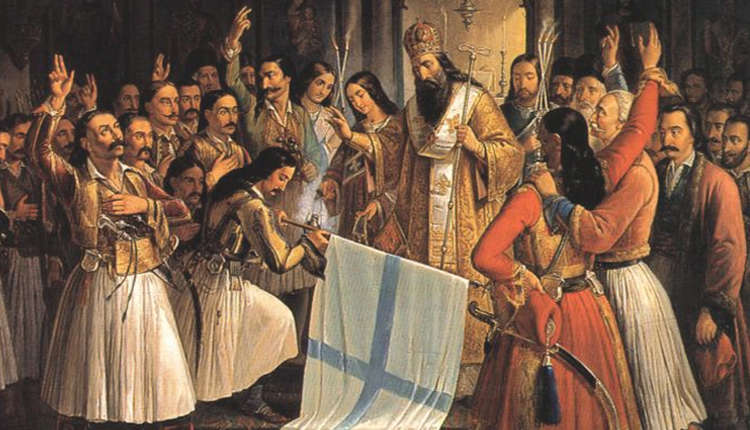The Greek revolutionary war for independence from the Ottoman Empire in 1821 was obviously of momentous importance to Greece.
However, few realize the impact of the Greek Revolution on world events, especially here in America.
As Greece prepares to celebrate 200th anniversary of its independence, a group in America is organizing events showing the role played by the Greek diaspora and Philhellenes around the world in the success of the Revolution, and how the Greek war sparked causes for freedom beyond Greek borders .
The Hellenic American Revolution of 1821 Bicentennial Committee, formed by the Cultural Alliance of Eastern Mediterranean Affairs, was charged with organizing anniversary events here in America.
“We will focus on the Revolution as an international event, not just a Greek event, but an event that will be important for the descendants of all the participants who supported the Revolution 200 years ago,” said Louis Katsos, president and founder of EMBCA. , and president of the Hellenic Cultural Commission of the AHEPA.
Thanks for reading Hellenic News of America
Also on the committee are two co-chairs of the Congressional Hellenic Caucus, New York Congresswoman Carolyn Maloney and Florida Congresswoman. Gus Bilirakis; Rhode Island State Senator Lou Raptakis Hellenic News founder Paul Kotrotsios, Greek-American entrepreneur, researcher and community leader Dr. Peter Stavrianidis; National Hellenic American Council President Bill Mataraagas; the writer Alexander Billinis; and Eric Hill.
EMBCA plans and organizes the events, in collaboration with AHEPA and other partners.

The events culminate with the anniversary date, March 25, 2021, and include:
August 12– An online roundtable on Greek genealogy and tourism. Participating were two leaders in Hellenic genealogy and an important executive in the field of international travel.
August 13–A round table and a presentation on Aghia Sophia.
Future August 30 There will be a roundtable webinar, “Commemorating the 2,500th anniversary of the Battle of Thermopylae and Salamis.”
The webinar will be held in association with the Hellenic Cultural Commission of the Order of AHEPA.
The panel will be moderated by Professor of Classics Joel Allen, Executive Director of the History PhD Program at the Graduate Center/Queens College.
Expert panel will discuss battles on the 2,500th birthday of the year.
Click on here for more details.
“Warrior arts of the Hellenes: from Antiquity to the modern era” will be September 13 in the form of a Zoom Webinar round table.
The discussion will focus on martial arts and combat sports that have been part of Greek history since 1900 BC, as well as their role on the battlefield.
Click on here for more details.
On September 27there will be a Zoom Webinar roundtable on “The Hellenic Dual Citizenship Initiative on the 200th Anniversary of the Hellenic Revolution.
The initiative encourages anyone belonging to the diaspora to apply for dual nationality in Greece, if permitted by law and birthright.
Immigration experts and members of the Greek ministry will participate.
Click on here for more details.
“We’re going to have at least one event a month, maybe two, related to the anniversary,” Katsos said.
AHEPA will also hold its supreme congress in Athens, Greece, in July 2021, as another way to celebrate its 200th anniversary, he said.

Support for the revolution
It was a revolutionary time in the world 200 years ago. Intellectuals around the world were thinking about the impact of the American Revolution and the French Revolution.
The idea of freedom resonated with many who saw the plight of Christian Greeks suffering 400 years of brutal slavery under Ottoman Muslim oppressors.
There has been a revival of interest in the neoclassical, in ancient Greece as the founder of Western democracies.
So when a secret organization of revolutionaries in Greece called Filiki Eteria, or Society of Friends, decided to stage an uprising, people around the world, including many Americans, took up the cause.
“All these things came together to make it an international event,” Katsos said.
While world leaders initially sided with the Ottoman Empire, citizens of these countries held fundraisers for Greece in major cities or traveled to Greece to join the fight against the Turks.
Many prominent figures of the Greek Revolution came from outside Greece, from the diaspora.
A notable example is that of Theodoros Kolokotronis, who was the leading general of the Hellenic forces. He left mainland Greece for about 15 years, living on the British-ruled Ionian Islands.
The impact of the Greek revolution
Americans who went to fight to help Greece win its freedom returned home and became among the founders of the abolitionist and women’s suffrage movements.
“When they came back to the United States after fighting in Greece, they obviously saw the slavery that existed in their own country and became abolitionists,” Katsos said.
Among them was Samuel Gridley Howe, an American physician and prominent abolitionist. He became involved in the Greek cause after earning a medical degree from Harvard Medical School and joined the Greek army as a surgeon and commander during the Revolution.
His wife, Julia Rush Ward Howe, was also an abolitionist and an early leader in the women’s suffrage movement. She is also known as the composer of “Battle Hymn of the Republic”.
James Williams was an African-American slave from Baltimore who fought and died in Greece for the liberation of the Greeks.
“A lot of people don’t realize what effect the revolution had beyond what happened in Greece,” Katsos said.


